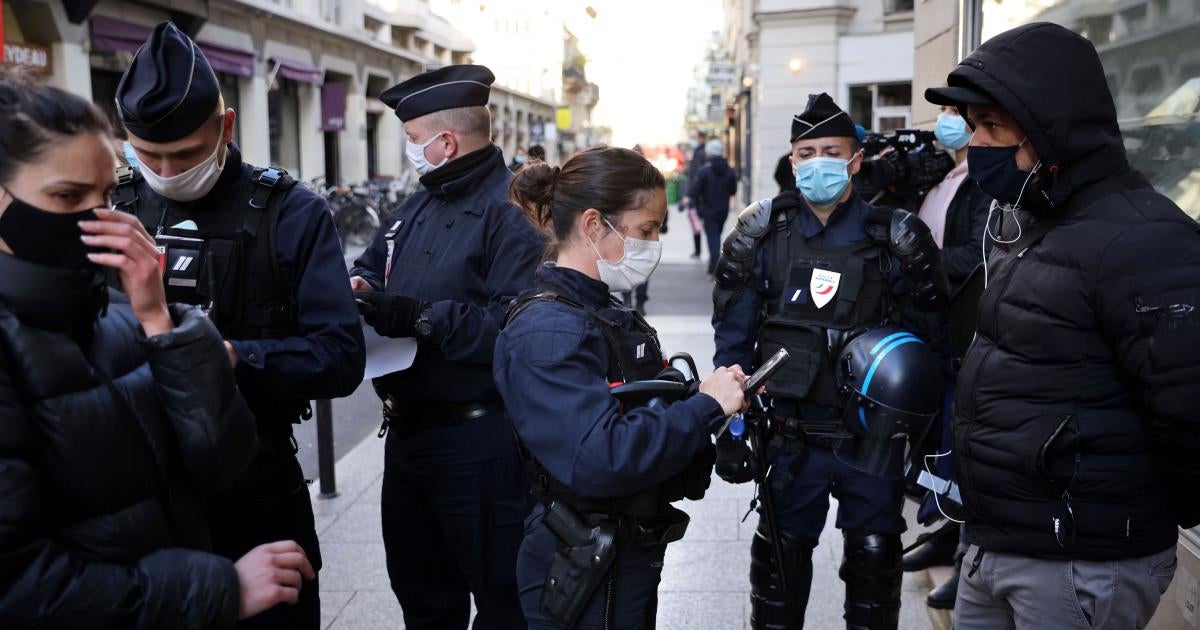(Paris, April 11, 2024) – Racial profiling by French police violates international human rights law, five French and international groups said in a complaint filed today with the UN Committee on the Elimination of Racial Discrimination (CERD).
Although in France the Council of State recognized in October 2023 that racial profiling by the police is not limited to “isolated cases,” the government has taken no action to address the problem. This inaction led the five groups to lodge a complaint before the UN Committee, which monitors compliance with the International Convention on the Elimination of All Forms of Racial Discrimination. France is a party to the treaty.
The groups are Community House for Solidarity Development (Maison Communautaire pour un Dévelopement Solidaire, MCDS); Pazapas; Equality, Anti-discrimination, Interdisciplinary Justice Network (Réseau Egalité, Antidiscrimination, Justice Interdisciplinaire, Reaji); Amnesty International France; and Human Rights Watch.
The groups have been working to eliminate racial profiling by French law enforcement since a landmark Court of Cassation ruling in 2016 condemning the French state for “gross misconduct that engages the responsibility of the state” in five cases of identity checks.
As evidenced by an extensive body of research, reports from independent institutions, including the French Defender of Rights, and testimony from numerous victims as well as police officers, racial profiling particularly targets Black and Arab young men and boys or those perceived as such, including children as young as 10. These abusive and illegal identity checks, which are widespread throughout the country and deeply rooted in police practices, constitute systemic racial discrimination.
The groups are asking the United Nations’ expert body on racial discrimination to recognize the systemic nature of the problem of racial profiling in France, and set out specific steps the French government should take to eliminate racial profiling.
The persistence and scale of the scourge of racial profiling has been recognized by numerous rights bodies, including national ones like the Defender of Rights (Défenseur des Droits, DDD) and the French National Consultative Commission on Human Rights (Commission nationale consultative des droits de l’homme, CNCDH) as well as European bodies like the European Commission against Racism and Intolerance (ECRI).
In the context of the class action before the Council of State, the DDD and the former United Nations special rapporteur on racism drafted voluntary interventions in support of the associations’ arguments.
By failing to take the necessary measures to put an end to this practice, the French government is failing to meet its obligations under several international treaties, including the International Convention on the Elimination of All Forms of Racial Discrimination, the organizations said.
The groups outlined the measures that the government should take to put an end to systematic racial profiling by police in France. These measures include:
Redefining and clarifying the legal framework for police identity checks to eliminate discrimination by requiring objective and individualized grounds for all checks, clarifying the prohibition of discrimination, and establishing specific regulations and instructions for stops targeting children;
Creating traceability for all such stops and identity checks by the police by creating a system for recording and evaluating the justification for each identity check, while requiring the police to issue those stopped with a record of the action;
Strengthening victims’ rights by providing a system for effective recourse to an independent complaints mechanism;
Changing the institutional objectives, guidelines, and training for the police, including with respect to interactions with the public.
The associations therefore wish to bring these failings to the attention of UN Committee’s independent experts, who have already expressed concerns about France’s failure to address police violence in the context of systemic racism.
MCDS, Pazapas, and Reaji are represented before CERD by the organization (Re)Claim.




